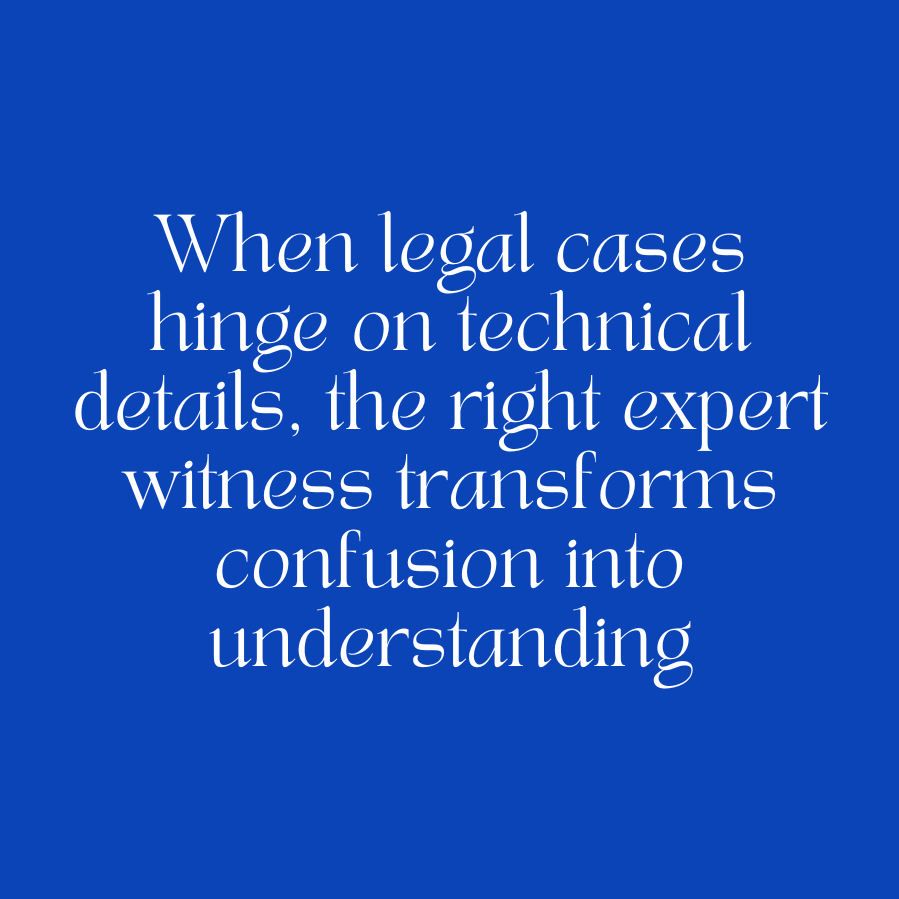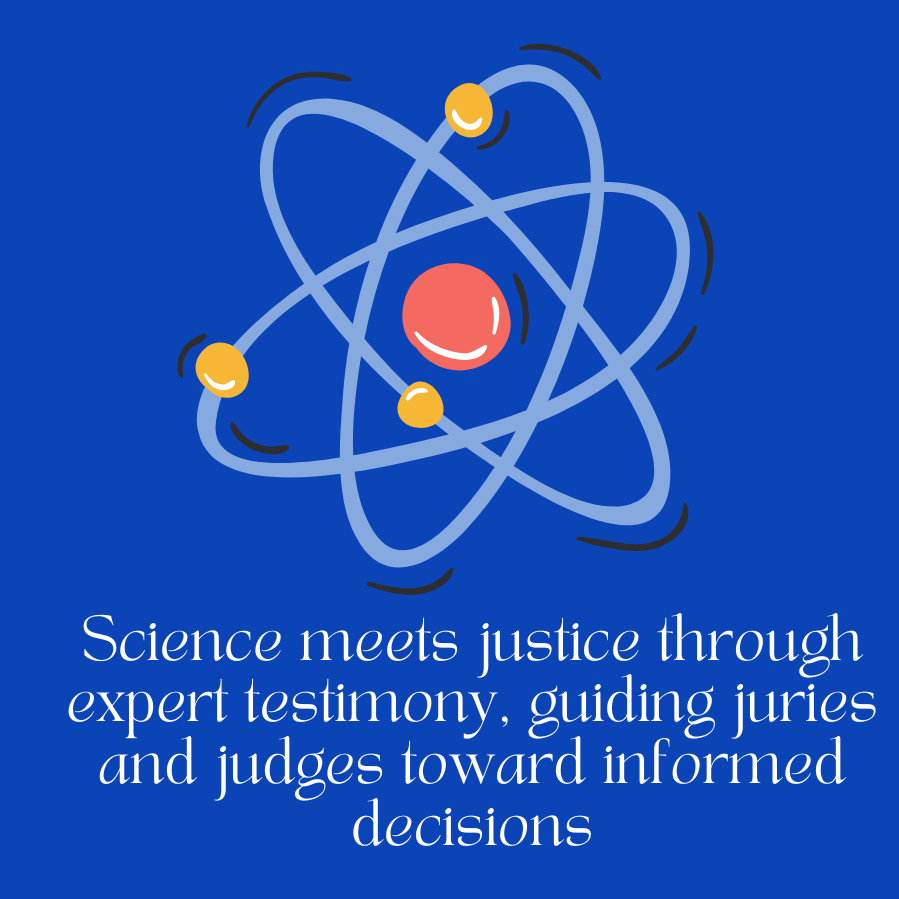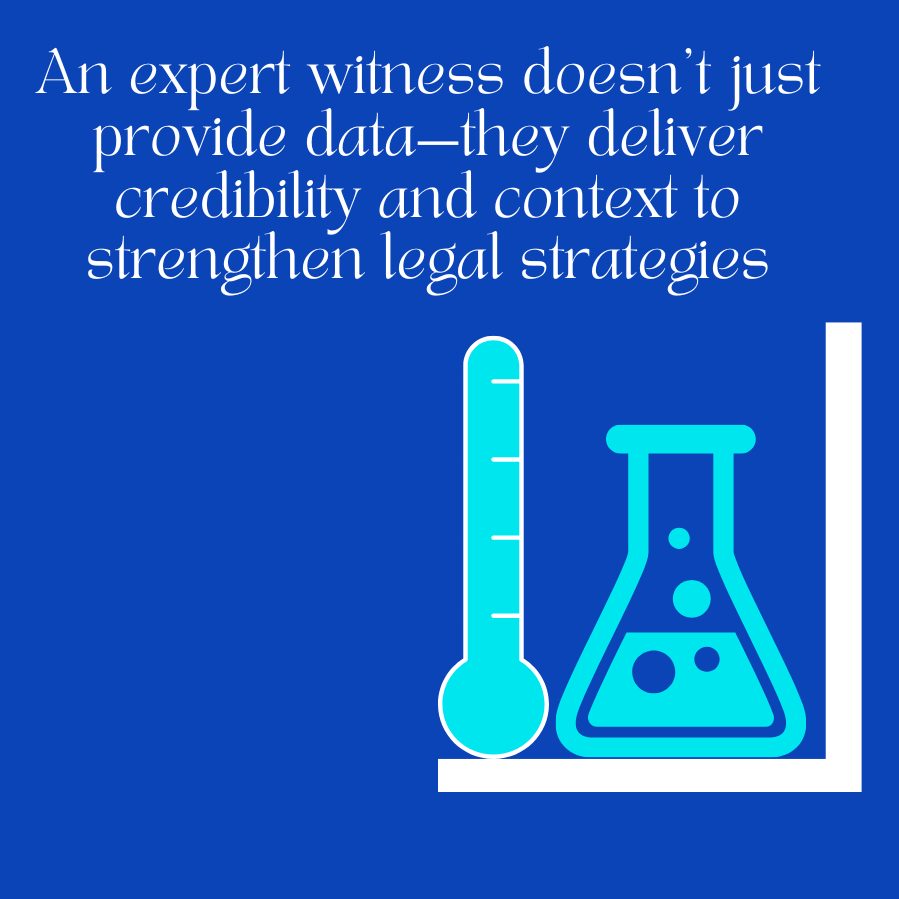The Intersection of Expert Witness Use of Law and Science
Picture this: you’re in the final weeks leading up to trial, juggling a mountain of evidence, deposition schedules, and last-minute strategy sessions. Then it hits you—your case hinges on a single question that only a specialized expert witness use of law and science can answer. The pressure to find someone with the right mix of credentials, courtroom presence, and the ability to simplify complex science for a jury is overwhelming.
You don’t just need an expert—you need the right expert. This crossroads, where law and science meet, is where the right expert witness can turn ambiguity into clarity and give your argument the credibility it needs to win. Let’s explore how leveraging the expert witness use of law and science can elevate your case from solid to unbeatable.
The intersection of law and science isn’t just an academic ideal—it’s a dynamic reality in today’s legal landscape.

Expert witnesses’ use of law and science has transformed the way attorneys approach complex litigation, from intellectual property disputes to environmental damage claims. In this article, we’ll explore how expert witnesses combine rigorous scientific methodology with legal acumen to strengthen cases and ensure favorable outcomes.
The Role of Expert Witnesses at the Intersection of Law and Science
Bridging the Gap Between Complexity and Clarity
Legal disputes often require an understanding of scientific principles that are far removed from the average juror’s knowledge base. This is where expert witnesses shine. By distilling intricate data into persuasive testimony, they make scientific information accessible and relevant to the legal questions at hand.
Example Scenario:
In a case involving water contamination, an environmental scientist served as an expert witness. Using geographic data and chemical analyses, he linked a company’s industrial practices to the contamination. His testimony not only clarified causation but also provided quantifiable damages that formed the foundation of the plaintiff’s argument.
By aligning scientific rigor with legal strategy, expert witnesses like this scientist help attorneys craft compelling narratives rooted in evidence.
Strengthening Credibility in Court
Expert witnesses bring more than their specialized knowledge; they bring credibility. Jurors and judges often view these professionals as neutral parties, lending weight to their testimony. However, this credibility hinges on the expert’s ability to demonstrate their expertise and the reliability of their methods.
Practical Tip:
When selecting an expert witness, ensure their professional expertise in law and science is well documented through publications, certifications, or previous courtroom experience. This not only bolsters credibility but also mitigates the risk of challenges during cross-examination.

Case Study: The Impact of Expert Witness Testimony in a Medical Malpractice Case
Case Background
In a high-profile medical malpractice lawsuit, a hospital was accused of negligence following a surgical procedure that left a patient permanently disabled.
The plaintiff’s legal team called on a biomedical engineer as an expert witness to analyze the surgical equipment used during the operation.
The Expert’s Contribution
The biomedical engineer conducted a detailed review of the equipment’s design and maintenance records. They identified a manufacturing defect that contributed to the failure during surgery.
Outcome
The expert’s testimony was pivotal in establishing liability. By combining scientific analysis with a clear presentation, the expert witness helped the jury understand complex technical details, resulting in a significant settlement for the plaintiff.
This case underscores the importance of choosing an expert witness who can seamlessly blend scientific expertise with legal relevance.
How Attorneys Can Maximize Expert Witness Contributions
1. Define the Case Needs Early
Before searching for an expert, identify the scientific or technical issues that are central to your case. This ensures that the selected expert has the right specialization.
Questions to Ask:
Does the case require an expert in chemistry, engineering, finance, or another field?
Will the expert need to conduct independent analyses or rely on existing data?
How critical is courtroom experience for the case?
By answering these questions, you can focus your search and avoid hiring an expert whose expertise is too broad or tangential to the case.
2. Prioritize Methodological Rigor
The Daubert standard and similar admissibility rules emphasize the importance of reliable methodologies. Ensuring that your expert’s approach aligns with these standards is essential to avoid testimony exclusion.
Key Considerations:
Has the expert’s methodology been peer-reviewed?
Are their conclusions supported by replicable data?
Have they applied their methods consistently in past cases?
3. Leverage Communication Skills
A great expert witness not only understands their field but can explain it effectively to non-experts.
Judges and jurors must grasp the core arguments; complex jargon can alienate them.
Practical Tip:
During initial interviews, ask the expert to explain a complex concept from their field. This will help you gauge their ability to simplify information without losing its substance.

4. Collaborate on Case Strategy
Expert witnesses can contribute to more than just testimony; they can shape the overall litigation strategy. Their insights can guide discovery, inform cross-examinations, and strengthen arguments.
Example:
In a product liability case, a materials scientist worked closely with the legal team to identify flaws in the defendant’s testing procedures. These insights became a cornerstone of the plaintiff’s argument.
5. Use Expert Witness Networks
When time is short or the case requires niche expertise, relying on an expert witness network can save time and ensure quality. These networks provide access to pre-screened professionals with proven track records.
Advantages of Expert Witness Networks:
Access to a wide range of specializations.
Rigorous vetting processes to ensure credibility and qualifications.
Reduced time spent on sourcing and evaluating candidates.
ExpertConnect Litigation Support is a leading example of such a service, offering tailored matches between attorneys and experts who meet the specific demands of each case.
The Future of Law and Science Collaboration
As scientific advancements continue to influence society, the role of expert witnesses will only grow. Emerging fields like artificial intelligence, climate science, and biogenetics are already shaping the legal landscape, creating new opportunities and challenges for attorneys.
Preparing for Tomorrow’s Cases
To stay ahead, attorneys must:
Stay informed about developments in scientific and technical fields.
Build relationships with expert witness networks to streamline future case preparation.
Invest in ongoing education about the admissibility standards governing expert testimony.
Conclusion: Building Stronger Cases with the Right Expert Witnesses
The intersection of law and science is where some of the most challenging—and rewarding—litigation takes place. By leveraging the expert witness’s use of law and science, attorneys can transform complex data into compelling arguments that resonate with judges and juries.
The key lies in selecting the right expert. Whether through rigorous vetting, clear communication, or collaboration on case strategy, expert witnesses provide the bridge between technical expertise and legal success. For attorneys navigating this intersection, partnering with a trusted expert witness network like ExpertConnect Litigation Support ensures access to professionals who combine scientific rigor with courtroom readiness.
Don’t let the complexity of science intimidate your case strategy. Embrace the power of expert witness testimony. Strengthen your litigation outcomes today with ExpertConnect Litigation Support, and ensure the expert witness use of law and science is done right.